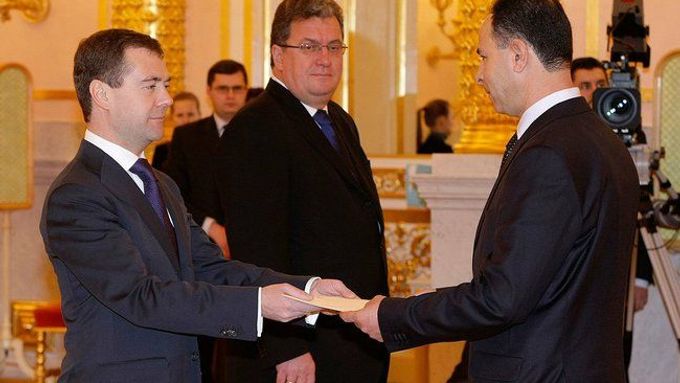Moscow - This September is expected to bring a new milestone in the decades-old Israeli-Palestinian conflict. Palestine plans to ask the UN to officially recognize it as an independent state.
Palestinians believe this step will help to unite the nation and regulate their ongoing conflict with Israel.
Aktualne.cz, a Czech on-line daily, spoke to Fayed Mustafa, Palestine's ambassador tin Moscow, about the independence petition and related issues.
Read more: Fareed Zakaria exclusive: China's rise is inevitable
Read more: Fareed Zakaria exclusive: US has cancer, needs reform
The petition is the second largest attempt at the international recognition of Palestine. The first took place in 1988, when the autonomous territories were acknowledged as an independent state by Arab countries and East Bloc states, including what was then Czechoslovakia. So far, 98 countries have recognized Palestine. Currently, the Palestinian elites hope to be able to convince another 30 countries to get the necessary two-thirds majority in the UN General Assembly.
"US position is disappointing"
Fayed Mustafa told Aktualne.cz that this process will not be easy. "The position of the USA disappoints us. Washington do not want us to ask the UN to for the international recognition. In spite of this, we are still in contact with the USA," said Mustafa. "We try to negotiate with them to make them change their position."
"We say openly to the USA: If you do not want us to ask the UN for the recognition, present a plan that will help to reach the peace in our region. We are doing this to solve the peace process in the Middle East," Mustafa told Aktualne.cz.
"The position of the EU is more helpful. In Europe, they understand our situation better," he added.
"Good relations with Russia"
Mustafa spoke also about the position of the remaining two permanent members of the UN Security Council, Russia and China. "We have good and strong relations with Russia. Moscow has no problem with recognizing our independence, because it already agreed with it a long time ago. Moscow officially recognized the Palestinian state in 1988," said Mustafa, adding that China supports the petition as well.
"Israel is against our effort to submit our petition to the UN, and tries to prevent it," said Mustafa. "We understand that the international recognition will not end the conflict between us and Israel. We want to go on with negotiations in order to reach our goal. We consider our petition a step towards a change of the form of the negotiation with Israel."
In addition, Mustafa warns that even if Israel recognizes Palestine, this will not mean that Muslim states will recognize Israel. "Muslim states are prepared to recognize the existence of Israel only if it retreats from all occupied territories. Not only from the Palestinian territory, but also from the Golan Heights and Southern Lebanon."
Mustafa said there is not yet an exact date when the petition will be submitted. The date will be decided on after the meeting of the so-called Quartet on the Middle East and subsequent summit of Arab states.
"Changing the nature of conflict"
"The recognition of Palestine by the UN General Assembly is a very important moment for our nation. It is also a serious moment from the optic of the Palestinian-Israeli conflict. After the recognition, its nature will change," said Mustafa.
"After the international community recognizes the independence, Israel will be occupying the territory of an independent state. The recognition will help to end the occupation of Palestine."
Mustafa also said that the agreement reached recently between Fatah and Hamas will help to further the petition. "I believe that the end of hostility between the two organizations will help our petition for the international recognition, and will increase the legitimacy of Palestine in the eyes of the international community."
